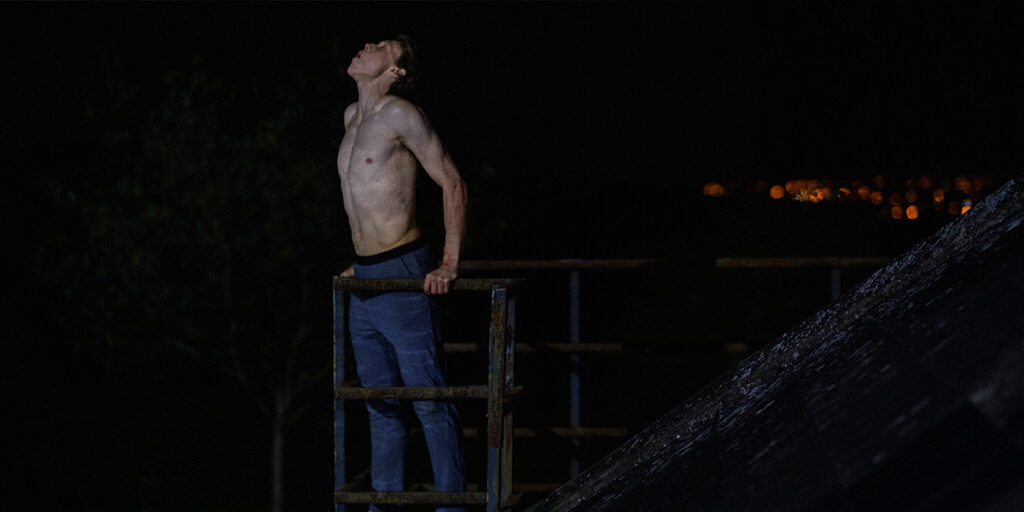Nathalie Biancheri is an Italian writer and director based in Dublin. Her short films have won awards at several international festivals such as SXSW, Edinburgh, Galway, Rhode Island Flickers Fest, and Palm Springs. Her film “Xavier Corbero: Portrait of an Artist in Winter” qualified for Oscar consideration in 2018. Her micro-budget feature film debut, “Nocturnal,” premiered at the BFI London Film Festival in 2019 to critical acclaim.
“Wolf” will premiere at the 2021 Toronto International Film Festival on September 17. The fest is taking place September 9-18. The film will be released in theaters on December 3.
W&H: Describe the film for us in your own words.
NB: It’s a drama about a boy who deeply feels he is a wolf [who finds himself in] a clinic which cures teenagers that think they are animals.
“Wolf” explores the conflict of accepting who you are over the expectations of society and the world we live in.
W&H: What drew you to this story?
NB: I was interested in exploring the question of identity — what makes up our identity, both as humans and as individuals.
W&H: What do you want people to think about after they watch the film?
NB: I wanted to leave the audience with questions: Is he a wolf? Is he not? What does it mean to be a wolf if you will never become one, but still feel you are one? Can he survive in this way? What will happen to him? Did he make the right choice?
W&H: What was the biggest challenge in making the film?
NB: I think my biggest fear was handling potentially very tricky material — after all, teenagers who behave like animals could, if treated wrongly, be comical or appear judgmental. So, finding the heart of each character and making sure the audience could see beyond the animal performance and into their soul was one of the biggest challenges for me.
W&H: How did you get your film funded? Share some insights into how you got the film made.
NB: The film was funded through various European public funding bodies: Screen Ireland, Polish Film Institute, and Eurimages. It was purchased by Focus Features only just before we started shooting.
W&H: What inspired you to become a filmmaker?
NB: Coming from journalism and documentaries, I realized I had always been more interested in exploring fiction, questions I had about the world through narrative rather than news per se. But every day I’m inspired by things I read, stories I hear, which then I want to explore through my own prism of understanding the universe.
W&H: What’s the best and worst advice you’ve received?
NB: Best advice: If you want to be an artist, just be an artist.
Worst: Don’t make that short film. You’re not ready yet.
W&H: What advice do you have for other women directors?
NB: Be fearless and take every opportunity.
W&H: Name your favorite woman-directed film and why.
NB: “Chocolat” by Claire Denis. She’s uncompromising in form and profound in the questions and worlds she wants to explore.
W&H: How are you adjusting to life during the COVID-19 pandemic? Are you keeping creative, and if so, how?
NB: Yes, always writing something new. It’s the only way to survive. Inspiration is writing every day.
W&H: The film industry has a long history of underrepresenting people of color onscreen and behind the scenes and reinforcing — and creating — negative stereotypes. What actions do you think need to be taken to make it more inclusive?
NB: I’m not one for forcing quotas or imposing rules on creatives, but I would say that awareness is the key thing — the more aware we are of underrepresentation and its effects, the more it becomes second nature to make those decisions when casting or crewing up. The more opportunities that we create in education, and at a young age, the more the inequality will balance out naturally in time.







